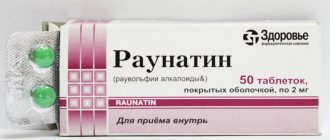Description of folic acid
Vitamin B9 (medical name is folic acid) is one of the most important nutrients for humans, which is needed for many processes in the body. Folic acid helps cells grow and maintain DNA integrity, so the vitamin prevents the development of cancer.
In addition, folic acid is involved in hematopoiesis and helps the functioning of the heart and blood vessels. By improving blood supply, acid has a beneficial effect on the immune system, improving the functioning of the nervous system and the general condition of the body.
BY THE WAY Our intestines themselves can produce folic acid, but in very small quantities, so the bulk of this vitamin must come from food.
Briefly about the vitamin
This acid itself is biologically inactive and for medical purposes it is obtained artificially in the form of tablets or vitamin ampoules . It is found in sufficient quantities in fresh vegetables (spinach, beans, beets, tomatoes), meat, liver, eggs, etc.
The acid is converted by the body's cells into a biologically active form called tetrahydrofolate, which is contained in enzymes and thanks to which the human body produces amino acids.
You can learn more about folic acid and food products with which the body receives part of the daily requirement of this vitamin in a separate article.
Reception features
Like any other drug, folic acid must be taken regularly. At the same time, take into account its interaction with other drugs. For example, acid reduces the effect of phenytoin, therefore, its dose needs to be increased.
A number of substances reduce the absorption of folic acid by the body:
- Antacids
- cholestyramine,
- some antibiotics (sulfonamides, chloramphenicol, tetracyclines, neomycin, polymyxin)
The effect can also be reduced by:
- cytostatic drugs (Methotrexate),
- antibacterial agents (Pyrimethamine),
- diuretics (Triamterene).
With this option, instead of folic acid, doctors prescribe calcium folinate.
How to take for prevention
For prevention, small daily doses of B9 are used: 400 mcg for an adult .
For adolescents, this dosage may be prescribed to prevent anemia, immunodeficiency, and retarded physical development.
Women planning a pregnancy are recommended to consume 1 mg of acid once a day for medicinal purposes for six months in order to reduce all kinds of fetal malformations.
When is the best time to take
"Folka" should be taken orally after meals , as indicated in all instructions for the drug.
The fact is that taking vitamins on an empty stomach can lead to irritation of the gastric mucosa: like other acids, folic acid increases its acidity. This provokes stomach diseases - gastritis, ulcers, etc.
If you take the vitamin with meals , the food will be more difficult to digest, since the acid forms an insoluble complex with zinc.
Important: if you miss a pill, you do not need to take a double dose
Admission to courses
To maintain optimal levels of folic acid in the body, it is necessary to consume it daily.
Doctors usually recommend taking the vitamin in a course of 30 days. But the duration can be increased depending on the distinctive characteristics of each organism.
TIP: It is better to drink any vitamins in the morning during breakfast, with plenty of liquid. This way the body can easily remove undigested vitamin excess.
How many folic acid tablets should you take per day?
The number of tablets depends on the mass of the active substance in it, since folic acid is now sold in different dosages.
Most often, folic acid is sold in pharmacies in a dosage of 1 mg. For medicinal purposes, you need to use 1-2 tablets. per day. Pregnant women - 1 tablet per day for prevention.
Folic acid and vitamin E: dosage regimen
Vitamin E and folic acid are a pair of beneficial elements that complement each other. Most often, gynecologists prescribe this combination of vitamins to girls from the first stages of pregnancy or to those who are just planning it.
Vitamin E and B9 guarantee the full development of the child’s internal organs and the development of the central nervous system. Vitamin E is directly responsible for the reproductive system, increases a girl’s fertility, reduces the threat of miscarriage in the short term, and prevents the placenta from exfoliating.
When consumed with folic acid, the intestinal wall is strengthened, the mother’s condition improves: efficiency increases, immunity strengthens, and the nervous system is restored.
Optimal dosage:
- Vitamin B9 (folic acid) - 0.8 mg per day. ;
- Vitamin E (tocopherol) - 0.3 mg per day. .
Is it possible to take folic acid without prescription?
Any pharmacy will tell you that this medicine is available without a doctor's prescription.
If you find yourself deficient in folic acid, then the smallest daily dose will not harm you, since the excess is eliminated by the body on its own.
The best option is dietary supplements that already contain folic acid. Like vitamin complexes, dietary supplements contain many other useful substances.
TIP : The daily amount of folic acid is determined by various factors: gender, age, lifestyle and body condition; Only a doctor can help you in the selection.
Despite the widespread belief that folate is easily excreted from the body and an overdose is impossible, it must be taken into account that the vitamin has a number of contraindications:
- increased sensitivity to B9,
- malignant anemia,
- oncology,
- vitamin B12 deficiency.
Release forms
Folic acids in pharmacies can be found in the form of powders or tablets (usually 1 mg, 25 and 50 pieces per pack).
However, there are other forms of release:
100 mcg
- the minimum dosage can be prescribed by a doctor for prevention;
- 100 mcg is how many mg: 0.1 mg
400 mcg
- dosage in tablets 400 mcg: 1 tablet. per day (if there is no deficiency), or half a tablet (1/2 tablet of acid) with a dosage of 1 mg per day - for children over 4 years of age and adults as maintenance treatment; pregnant women to prevent fetal defects
- 400 mcg is how many mg: 0.4 mg;
- folic acid 400 mcg is how many tablets: 1 tablet. dosage of 400 mcg or a quarter of a tablet with a dosage of 1 mg is the recommended daily dose for women of childbearing age and during pregnancy.
800 mcg
- dosage in tablets 800 mcg : 1 tablet. or a little less than 1 tablet. a dosage of 1 mg is prescribed during pregnancy and lactation.
- 800 mcg is how many mg: 0.8 mg
1 mg
- dosage in tablets 1 mg : 1 tablet. for the treatment of anemia, pregnant women - from 1.2 to 2.5 tablets. per day in the first trimester.
- 1 mg is how many mcg: 1000 mcg
4 mg
- dosage in tablets 4 mg: prescribed when planning pregnancy. There is no need to be afraid of such doses: if the doctor prescribed this volume for you, it means that you or your baby are lacking B9
5 mg
- dosage in tablets 5 mg: adults 1 tablet. per day for the treatment of vitamin deficiency, for children - in smaller doses depending on age
- 5 mg is how many grams: 0.005 g
Folic acid dosage for children
Folic carbon dioxide is necessary for the growth and proper development of the body, because the body’s immunity is developed directly in childhood, the main life-support systems are formed, so it is important to give the child all the necessary vitamins for its construction.
Baby
Infants are recommended 25 mcg of folic acid every day. With normal development, the baby receives all nutrients from mother's milk, but if the doctor reveals a lack of nutrients in the newborn, B9 is prescribed additionally. Premature babies often need folic acid.
Teenager
During adolescence, B9 is necessary for children for the normal course of sexual development: vitamin B9 helps the young body establish hormonal balance. During adolescence, many face problems with the skin of the face and body: acne, pimples, redness. With the help of folic acid you can fight redness and irritation of the skin.
To prevent vitamin deficiency, children at this age are recommended to take 150-200 mcg, which is half a tablet with a dosage of 400 mcg. But you need to remember that if the body needs restoration, then the doctor determines the therapeutic dose of acid.
Schoolboy
Folic acid for school-age children from 6 to 10 years is prescribed in a dosage of 100 mcg per day; from 10 to 14 years – 150 mcg.
Schoolchildren need vitamin B9 to regulate brain activity to help children cope with their academic workload and relieve emotional stress.
How much folic acid do children need: summarizing
| Age group | Daily norm |
| From 1 to 6 months | 25 mcg |
| From 6 to 12 months | 35 mcg |
| From 1 to 3 years | 50 mcg |
| From 4 to 6 years | 75 mcg |
| From 7 to 10 years | 100 mcg |
| From 11 to 14 years | 150 mcg |
| From 15 years onwards | 200 mcg |
Daily value for women
To maintain the balance of vitamins in the body, an adult woman needs to take at least 400 mcg of folate per day.
In addition to the fact that vitamin B9 strengthens the body, normalizes internal processes and improves general condition, folic acid (folic acid, as mothers like to call it) is of particular importance for women:
- has a beneficial effect on the reproductive organs,
- stops hair loss, rejuvenates and tones the skin;
- normalizes hormonal levels;
- reduces menopause symptoms;
How many times to take per day
Doctors advise taking folic acid (vitamin B9) like all other vitamins according to the following regimen: 1 time per day, preferably in the morning, with meals. Drink with a small amount of water.
Interaction with other tools
Despite the fact that folic acid is a vitamin, before you start taking it, you should consider its compatibility with other drugs used by the patient. For example, a number of medications reduce the rate of absorption of folic acid in the intestine:
- Antacids.
- Some antibacterial agents: tetracyclines, sulfonamides, etc.
Some diuretics, for example, Triamterene, can also reduce the severity of the effect of folic acid, which should be taken into account when using them together.
Daily value for pregnant women
| Gestational age | Dosage per day |
| in the first trimester of pregnancy | 800 mcg per day, up to 5 mg per week |
| in the second trimester of pregnancy | 600 mcg per day. It is best to divide the medication intake into 2-3 times |
How many weeks should I take folic acid?
Due to the fact that folate is not accumulated by the body, acid is needed already in the first weeks of pregnancy, doctors recommend taking it at the planning stage of the baby.
IMPORTANT! A woman's body needs vitamin B9 most in the first 12 weeks of pregnancy.
The use of vitamin B9 for cosmetic purposes
In cosmetology, this acid is widely used in regenerating and soothing products; it also has a positive effect on hair, namely, it strengthens and heals it and prevents early baldness and gray hair.
Folic acid for hair
Liquid folic acid from ampoules is used for hair; it is not used in its pure form, but as an addition to masks, shampoos, and balms.
Recipe: add a few drops of vitamin B9 to burdock oil, apply to hair and wrap, wait 30-40 minutes, then wash your hair with shampoo adding one drop of this acid.
This vitamin is found in large quantities in food. Therefore, they can be used with great success in masks and hair wraps.
Recipe: a wonderful mask for dry and lifeless hair consists of avocado pulp (contains B9), yolk (also contains B9) and olive oil, you can add 2-3 drops of lemon juice. Apply the mask for 30 minutes.
Honey also contains a lot of folic acid, so honey rubs and masks with its addition will come in handy for those with thick hair .
Vitamin B9 is simply necessary for the synthesis of nucleic acids, which transmit hereditary information, and therefore is indispensable for the processes of growth and regeneration of body cells, including hair.
In addition, this vitamin gives us a wonderful optimistic mood and confidence , and this can already make a woman beautiful and healthy.
Folic acid for weight loss
The use of vitamin B9 in its pure form, as part of a vitamin complex or in food products makes it possible to significantly increase the rate of metabolic processes in the body and the burning of the so-called fat depot. When exposed to folic acid, internal fat breaks down into simple alcohols and fatty acids , which are removed from the body by the excretory system.
Along with dietary restrictions and optimal physical activity, taking folic acid is included in the weight loss program. This can be either taking medication or eating foods containing large amounts of this vitamin.
Not only folic acid is good for hair. For example, masks with vitamin B6 for hair will strengthen your hair against hair loss.
How is biotin beneficial for hair? All about vitamin B7 to improve hair in a special material.
Lack of vitamins is a common cause of baldness. What vitamins against hair loss are really good - https://vitaminizer.net/recommend/beauty/vitaminy-protiv-vypadeniya-volos.html








